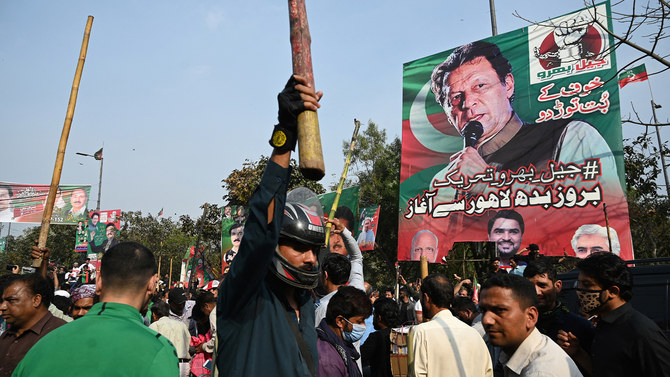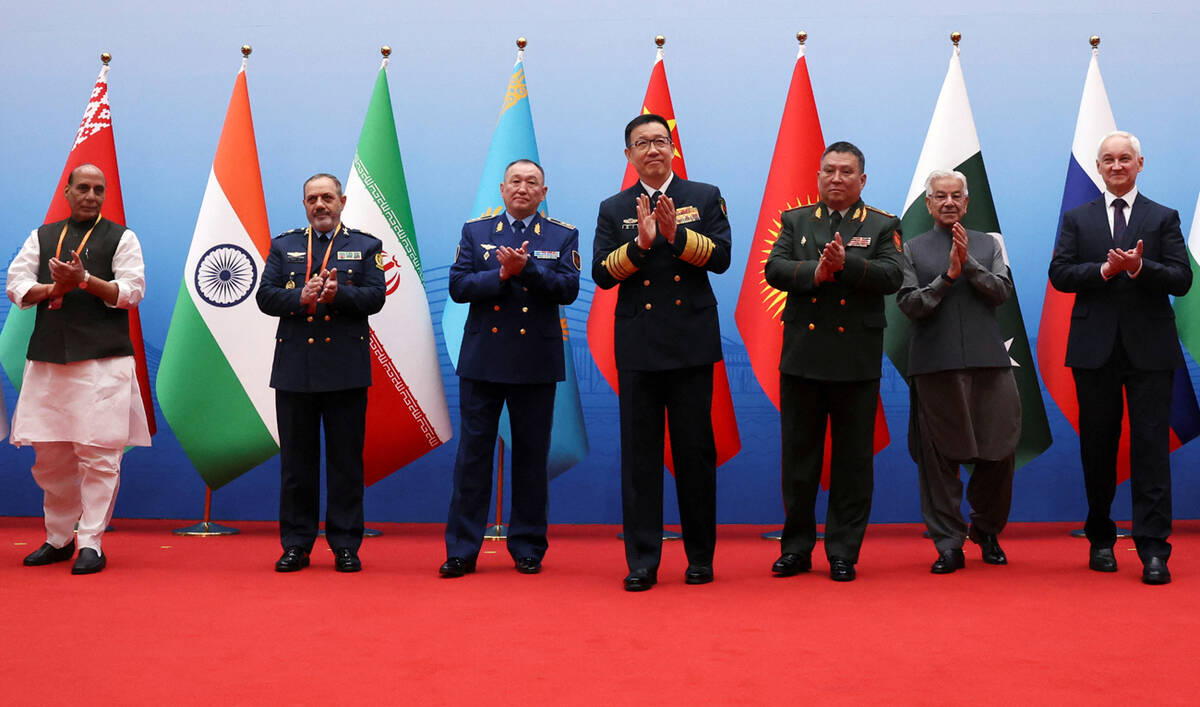ISLAMABAD: The top leader of a Pakistani religious political party, Jamaat-e-Islami (JI), held separate meetings with Prime Minister Shehbaz Sharif and his arch-rival Imran Khan in the eastern city of Lahore on Saturday, trying to convince the two leaders to sort out their differences over the upcoming elections through constructive negotiations.
Pakistan’s ruling coalition has consistently refused to hold early elections in the country since the downfall of Khan’s Pakistan Tehreek-e-Insaf (PTI) administration in a parliamentary no-confidence vote last year in April. However, Khan has been seeking snap polls since his ouster from power and dissolved the provincial assemblies of Punjab and Khyber Pakhtunkhwa in January, where his party was in power, to mount greater political pressure on the government.
As the political crisis deepened in recent months over the issue, Pakistan’s top court took up the matter for hearing and instructed the country’s central bank to give Rs21 billion to the election commission to conduct the polls.
The JI chief, Siraj-ul-Haq, took a three-member delegation to mediate between the two sides and said he was reasonably satisfied with the outcome of the two meetings.
“The meetings with Prime Minister Mian Shehbaz Sharif and former prime minister Imran Khan were useful,” he said in a Twitter post. “It was agreed to move forward through negotiations. The political, economic, and constitutional crises that Pakistan is currently facing cannot be solved by any court or establishment. Politicians will have to solve their own problems.”
The JI leader maintained that the best way out of the current situation was to approach the people and agree on a date for national elections.
“Elections should be conducted in such an environment that the results are accepted by all, and no more chaos is spread as a result,” he continued.
The current political situation in the country has also created a rift between the government and Pakistan’s superior judiciary. The coalition administration has openly accused the Supreme Court of playing a “leading role” in politics while asking it not to “trespass” on parliament’s territory.
The JI’s initiative is not the only one to bring the top PTI leadership to the negotiating table with the government amid a highly polarized political environment. Last month, a delegation of civil society organizations also held meetings with the two sides while trying to convince them to call an all-parties conference to iron out their differences.

















